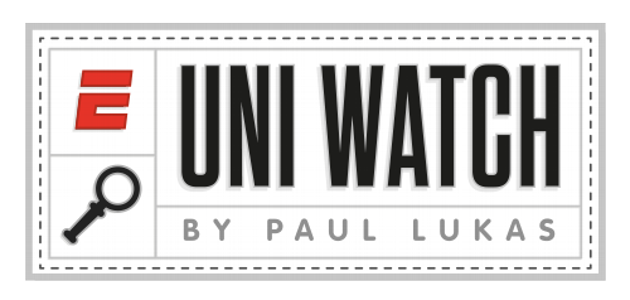
And so it begins: After years of false starts, the NBA finally has decided to move ahead with corporate advertising on its uniforms, beginning in the 2017-18 season.
The debate on this issue usually boils down to some variation of, "The owners are driven by shameless greed," versus, "You can't stop free enterprise, especially when there's that much money on the table." I've staked out my own turf in that debate (hint: I came up with the hashtag #NoUniAds), but we've all heard those arguments many times before and there's little need to rehash them now.
Instead, I want to talk about brand loyalty, because there's a sad irony at work here. The NBA, by adding corporate brands to its uniforms, runs the risk of ruining one of the most audacious examples of brand loyalty the world has ever seen.
Think about how brand loyalty usually works. Let's say you like Cheerios. Sure, you've internalized a positive emotional association with the yellow box and the logo, but your loyalty is ultimately based on how much you like the cereal. If they tinker with the product, all that internalized goodwill toward the box and the logo won't be enough to keep you coming back. That's what Coca-Cola learned in the infamous New Coke debacle: Brand loyalty is really product loyalty.
Except, that is, in the sports world. In sports, the product is changing all the time; players are traded, they retire, they move via free agency, and so on. As a result, the quality of the product is constantly changing as well. A team can be really good one year and really bad the next. And yet we still keep rooting for those colors, that logo and that uniform, no matter who's wearing it. It's a remarkably powerful form of brand loyalty.
How powerful? Consider this: Let's say I'm a Yankees-hating Mets fan (which happens to be true). And let's further say, just hypothetically, that the entire Mets team is traded for the entire Yankees team later today -- 25 guys for 25 guys. Who do I root for tomorrow? That's easy: I root for whoever's wearing a Mets uniform, even if it happens to be 25 guys I hated the day before.
That, people, is the power of a uniform. Comedian Jerry Seinfeld has famously referred to this as "rooting for laundry," which obscures the fact that it's the most potent form of brand loyalty on the consumer landscape. It's one of the really special things about sports. And that's the incredibly powerful mechanism the NBA is risking by allowing ads on its uniforms. In an era when virtually every facet of the sports experience is now advertised or sponsored, the uniform has become the last ad-free haven, a place where fan and team can bond without the external noise of competing brands.
Will the sight of, say, a small McDonald's logo on a Miami Heat jersey really keep fans from rooting for the team? Of course not. But it's the kind of thing that cheapens and chips away at that fan-team bond (especially if the fan happens to like Burger King better than McDonald's). And while the ads may start out small -- the NBA's current plan calls for the patches to be 2.5-by-2.5 inches -- does anyone really believe they'll stay small for long? No less an authority than NBA commissioner Adam Silver himself has referred to the spread of uniform advertising as "manifest destiny," and he already has a convenient model for how larger ads would look on a basketball uniform: the WNBA, which has been using more prominent jersey ads for years now. You don't need binoculars to see where this is heading.
If NBA teams eventually end up looking like European soccer teams, would that qualify as a major cultural crisis, a disaster, an emergency? No. Life will go on, the world will keep spinning and most fans will continue to purchase tickets and related merchandise just like they always have.
But the strong suspicion here is that many fans will make those purchases with a more jaundiced eye. They will have a vague sense, even if they can't fully put it into words, that something special has been lost, that the bond they once enjoyed with their team has been sullied, and that their brand loyalty is being taken for granted.
And they will be right.
I don't mean to suggest that advertising is inherently evil. Like most things, it has its place and its uses. Advertising can be entertaining, it can be enlightening, and occasionally it can even be beautiful. I'm also well aware that advertising pays my salary. But I think it's good to have some advertising-free zones, and I think sports uniforms should be among them. The NBA owners, obviously, disagree. Here's hoping the other major sports leagues don't follow their lead.
Paul Lukas will to try to enjoy the 18 ad-free months we have left before the start of the 2017-18 NBA season. If you liked this column, you'll probably like his Uni Watch Blog, plus you can follow him on Twitter and Facebook. Want to learn about his Uni Watch Membership Program, be added to his mailing list so you'll always know when a new column has been posted or just ask him a question? Contact him here.
